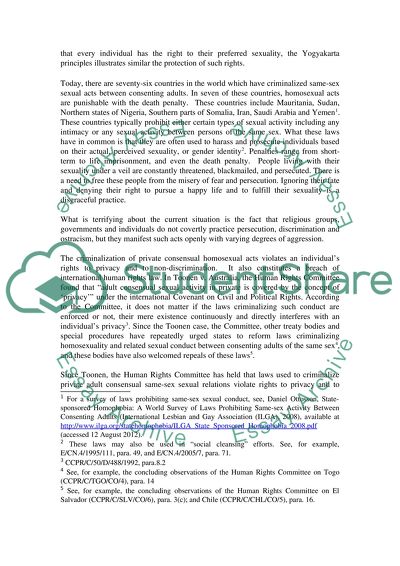Cite this document
(“Human Rights Violations Essay Example | Topics and Well Written Essays - 2750 words”, n.d.)
Human Rights Violations Essay Example | Topics and Well Written Essays - 2750 words. Retrieved from https://studentshare.org/law/1400877-international-refugee-law
Human Rights Violations Essay Example | Topics and Well Written Essays - 2750 words. Retrieved from https://studentshare.org/law/1400877-international-refugee-law
(Human Rights Violations Essay Example | Topics and Well Written Essays - 2750 Words)
Human Rights Violations Essay Example | Topics and Well Written Essays - 2750 Words. https://studentshare.org/law/1400877-international-refugee-law.
Human Rights Violations Essay Example | Topics and Well Written Essays - 2750 Words. https://studentshare.org/law/1400877-international-refugee-law.
“Human Rights Violations Essay Example | Topics and Well Written Essays - 2750 Words”, n.d. https://studentshare.org/law/1400877-international-refugee-law.


